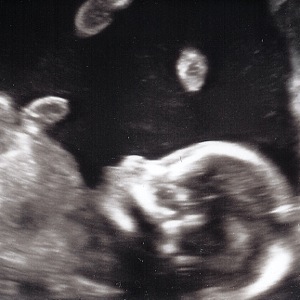
 HE SACRAMENT of baptism is rich in theology and deep meaning for our everyday lives, no less eternal life. It is also widely misunderstood—not that I will pretend to understand everything about it. One can witness or read the Rite of Baptism over and over and garner greater meaning with each experience. You can read the Rite of Baptism with the various forms here. This includes text in English and Latin.
HE SACRAMENT of baptism is rich in theology and deep meaning for our everyday lives, no less eternal life. It is also widely misunderstood—not that I will pretend to understand everything about it. One can witness or read the Rite of Baptism over and over and garner greater meaning with each experience. You can read the Rite of Baptism with the various forms here. This includes text in English and Latin.
DOWNLOAD a very simple Baptism Acclamation SATB or UNISON:
* * PDF • You Have Put on Christ (SATB) with congr. insert
During the Easer Vigil, many of us may have witnessed the baptism of adults. I always emphasize to the choir the vast importance of their work for the Elect. Not only do they appreciate the music enormously, the music is very much part of their formation. Why? The music is wedded to the liturgy and hence the sacraments they have prepared for months to receive. The impact of reverent and beautiful liturgy upon the newly baptized is immeasurable.
It is very emotional to witness adults baptized, confirmed, and entering into the Church. They have made a conscious choice to make a radical change in their lives. This kind of action strengthens the entire faith community and challenges all of us to experience metanoia in our lives.
This deliberate choice of an adult is obvious and easy to grasp. It is an occasion for great joy. For infants, there is something different, but equally extraordinary at work. It is the conscious choice of the entire Christian Community, and it is found in the Rite of Baptism.
 NE OF THE MOST EMOTIONAL experiences of my life was during the baptism of my second child. The words hit me like a ton of bricks. I knew they were coming, but time froze, and I was bowled over in my heart: “I claim you for Christ….”
NE OF THE MOST EMOTIONAL experiences of my life was during the baptism of my second child. The words hit me like a ton of bricks. I knew they were coming, but time froze, and I was bowled over in my heart: “I claim you for Christ….”
Here is the text from the Reception of the Child:
79. N., the Christian community welcomes you with great joy. In its name I claim you for Christ our Savior by the sign of his cross. I now trace the cross on your forehead, and invite your parents (and godparents) to do the same.
The conscious choice begins with the parents, but this choice is made manifest and is strengthened by the entire faith community. The priest, acting In persona Christi, is not alone claiming the child for Christ. Nor is the decision to do so merely the priest’s. It is in fact the entire Christian Community that claims the child as ministers of that child’s faith. (This is in part why parish communities are so important in our daily lives.) From the introduction to Baptism for Children:
4. “…it is clear that the faith in which the children are baptized is not the private profession of the individual family, but the common treasure of the whole Church of Christ.
It is nothing short of a fiercely passionate loving act to have one’s child clothed in Christ—to raise one’s child in the faith. And it isn’t easy. As a parent (and as a prolific sinner), I don’t know precisely how to do all the right things for my children. But my desire my for my children is for them to experience the love my wife and I have for our faith. As adults, I pray (as fervently as St. Monica) that they will continue their loving relationship with God through a life of faith and service in the Church.
 IGHT NOW IT IS MY WIFE’S and my responsibility to nurture and develop that faith in our children. This formation begins with baptism: “The foundation of formation is the sacrament itself…” (Baptism for Children, Introduction §3)
IGHT NOW IT IS MY WIFE’S and my responsibility to nurture and develop that faith in our children. This formation begins with baptism: “The foundation of formation is the sacrament itself…” (Baptism for Children, Introduction §3)
In my own experience, while I had a very “strict” religious upbringing, it was the enthusiastic love for the Catholic faith my parents radiated that took deep root within my heart—roots that have stayed with me and my sisters throughout our lives. My wife has a similar story. There is no question we want to pass along the greatest jewel we have to offer our children: a loving relationship with God rooted in the faith of the Church. As parents, we could not possibly consider doing otherwise.

My wife and I are currently anticipating the birth of our fourth child. The sonogram above is that of our child. Did we make the decision to claim our child for Christ long before this image was taken?
You better believe it.

